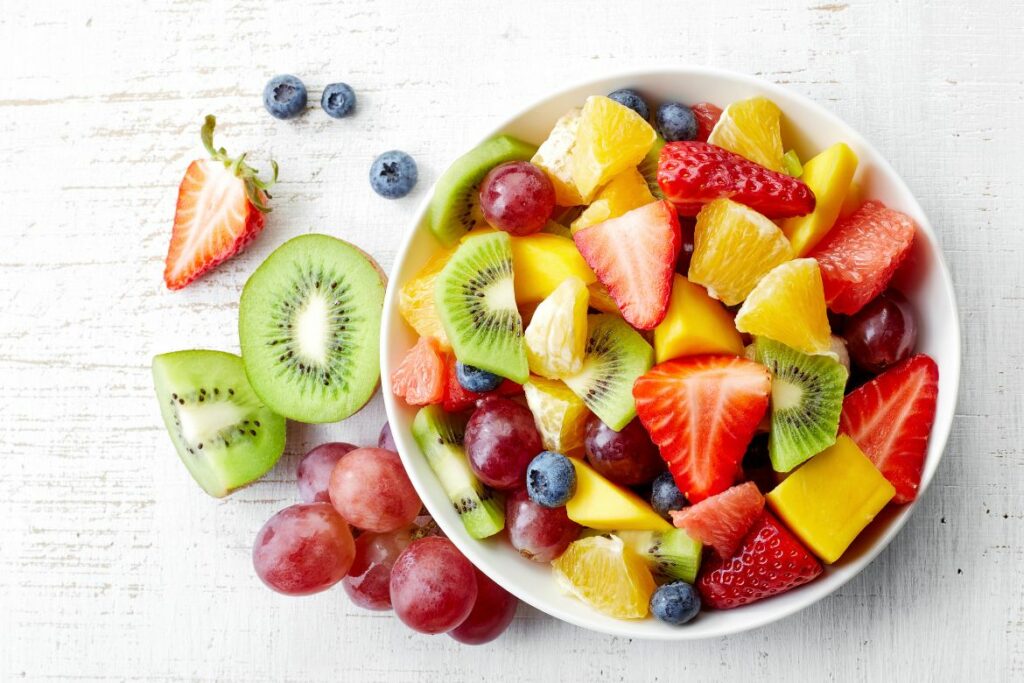When it comes to healthy eating, we all have questions to ask a dietitian—conflicting information is everywhere. Our Registered Dietitian answers some common questions about diet and nutrition.


When it comes to healthy eating, we all have questions to ask a dietitian—conflicting information is everywhere. Our Registered Dietitian answers some common questions about diet and nutrition.
Q: Is vegetarian (or keto, or…) the best way to eat?
A: There’s not one best way to eat. We are all unique, and some individuals may have various medical conditions that play a role in the way we fuel our bodies and the food choices we make. The best plan for you is that one that meets your medical and nutritional needs. And one that is enjoyable, accessible, and something you are able to stick with for the long term. By meeting with a registered dietitian, they can help you navigate and understand the best possible plan for you.

Q: How many glasses of water should I consume daily?
A: Staying hydrated is very important for many reasons related to our bodily functions, such as maintaining a normal body temperature and removing waste through urination, perspiration, and bowel movements. So it is essential to make sure we are consuming enough water throughout the day. Consider your thirst sensation as being the best indicator that you need to drink. Make sure to keep beverages visible so you remember to take a sip throughout the day. Although there is not a static number of ounces for everyone, aim to consume water with each meal and snack.

Q: Is food labeled “organic” more nutritious?
A: There are a plethora of marketing claims on products all throughout the grocery stores and markets. When a product or food is labeled as “organic”, this is referring to the method of farming, not the nutritional value of the product. An organic logo does not reflect the nutritional contents of the food, such as calories, fat, salt, or sugar. Nutritious foods, whether conventionally or organically grown, are those that provide a good source of fiber, protein, and are low in salt and saturated fat.

Q: Should I avoid fruit because it has too much sugar?
A: The number one source of added sugar for Americans in their diet is from sweetened beverages, such as soda and energy drinks. Fruit provides about 1% of the added sugars individuals consume. Of note, health advice to limit “added sugar” does not apply to the natural sugar in fruit. Even if Americans consumed the recommended daily amount of 1-2 cups per day, it wouldn’t come close to the volume of sugar from ultra-processed foods and beverages. Bottomline, keep enjoying fruit, especially those with skins and seeds, as these are great sources of fiber.

Written by: Registered Dietitian Kali Alrutz
To get started with 1 on 1 Nutrition Counseling with our Registered Dietitian, call us at 412-322-2129 or fill out the form below.
What is Nutrition Counseling? Liz Mckinney, Certified Nutrition Counselor in...
Anti Inflammatory Diet: Key Foods for Fighting Inflammation Have you ever...

Customer reviews showcase the level and quality of service a website provides.
Trustindex collaborates with 133 review platforms to provide website visitors easy access to all real and verified reviews in one place.
Reviews from other platforms are displayed and added to the ratings only if they are proven spam-free and meet Trustindex's guidelines.
Trustindex continuously measures the satisfaction of your customers based on evaluations. Less than 1% of the customers surveyed indicated a problem.
The website's contact information and business information has been independently verified by Trustindex.
The website is constantly checked for security issues by Trustindex.

Websites that continuously maintain a high level of customer satisfaction and comply with a high level of security protocol can obtain a Trustindex certificate. When shopping, look for Trustindex certificates and buy with confidence.
More details »
For businesses
Build trust and increase sales with Trustindex certification.
More details »
